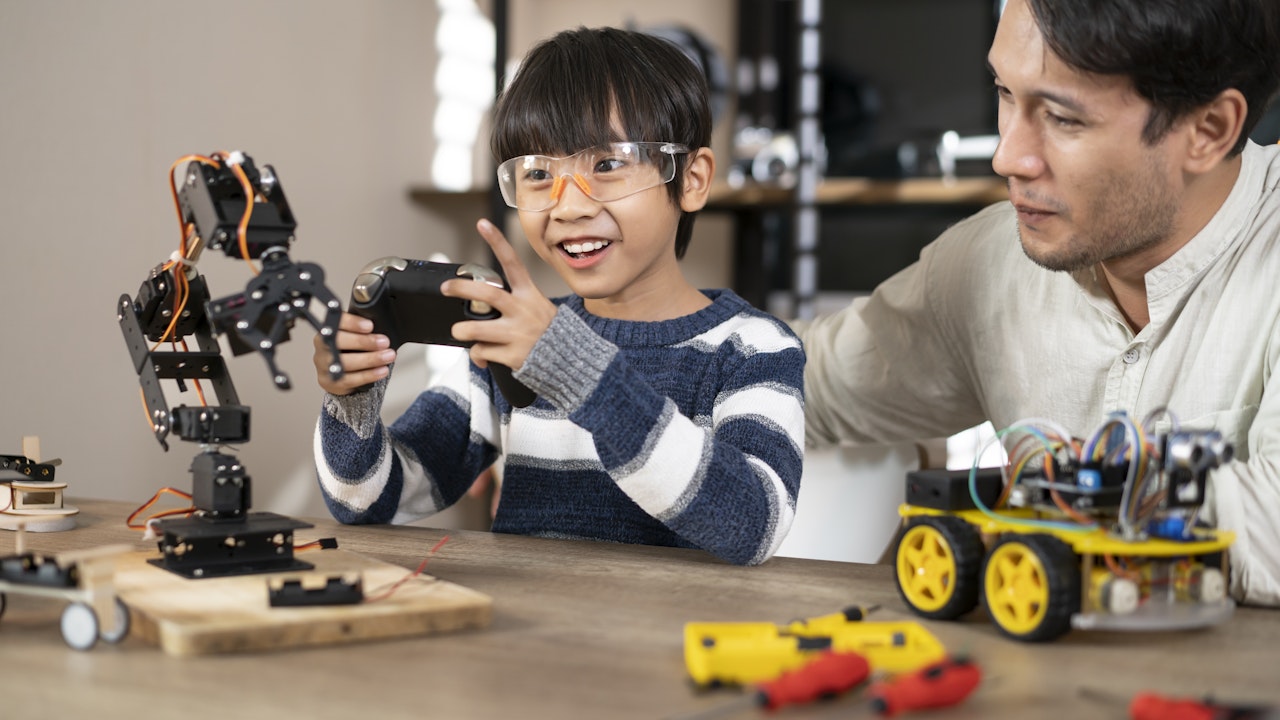I recently embarked on my sixth annual journey of delivering professional development to educators across the county, hitting at least two cities or states a week. My mission? To promote a passion for lifelong learning, foster synergy for instructional and technological innovation, and inspire the many educators I met and encountered from coast to coast.
I provided PD to a wide spectrum of educators, including district and school leaders, school counselors, psychologists and teachers who worked in energetic communities, each with its unique atmosphere and vibe. Each place taught me what educators were thinking from heartfelt conversations and the valuable data I collected following our workshops.
Many profound observations stood out to me, helping me evolve as a coach and renew my hope for a brighter educational future. Here are my top two observations and insights into how they may shape education.
1. Excitement for Instructional Innovation Like AI
It's no secret that many educators are challenged by burnout and the weight of the ever-evolving demands of our profession, which can make teaching extremely stressful.
However, throughout my travels, the enthusiasm I encountered was refreshing. Many educators were hopeful, happy to connect with colleagues and eager to embrace instructional innovation with relevant edtech tools. At the top of many educators' lists was using the power of generative artificial intelligence (AI) in projects and lessons.
Many were ready to collaborate with their colleagues to explore ways of integrating AI tools creatively and adapting their pedagogical approaches to meet the evolving needs of the kids they serve.
I witnessed collective commitments to designing meaningful student learning experiences, and their shared camaraderie was inspiring and contagious. Maintaining this enthusiasm is a must. Here are three ways district and school leaders can help keep the energy up:
1. Designate collaborative time.
Provide teachers with frequent and ample time to collaborate with their grade-level colleagues on teaching strategies, curriculum mapping, revamps and edtech tool exploration and integration.
2. Empower teacher voice and choice.
Give teachers more say about the types of edtech and AI tools their kids need for increased productivity.
3. Invest in tailored professional development.
Support teachers by providing PD that aligns with their interests and classroom needs. There's value in providing them with PD suggestions, but make sure you survey them and factor their feedback into what's implemented on your district PD days.
2. A Demand for Life Skills Education
Another theme that emerged from educators was a sense of urgency to nurture the whole learner. Many of our kids face hardships, and during my summer PDs, many school staff expressed a troubling reality for some students — a reluctance to engage in their education. Data suggests there's a variety of reasons for this, including:
As we know, learning extends beyond school subjects and technological skills. Education also involves developing essential life skills that prepare students for success in academic learning, careers and life goals. Life skills are diverse competencies, including knowledge of self, social and emotional learning (SEL) and career-ready skills.
Exposure to the proper life skills education can equip students with the tools they need to navigate the complexities of modern life — thus empowering them in some of the following ways:
- Develop a healthy self-esteem grounded in self-love and acceptance.
- Cultivate positive and appropriate relationships.
- Make informed and responsible decisions.
- Becoming more intentional about helping others.
When designing the experiences for imparting life skills to students, school and district leaders must be mindful of buy-in and effective rollout strategies. We should be careful not to invest human capital, time and resources in blanket PD just because it’s the latest flavor of the month. Here are some ways school leaders can ensure offerings pertaining to life skills are focused and timely for staff and students:
1. Gauge and survey students and families.
Student input and parental and caregiver involvement are critical to the success of life skills initiatives, like SEL. Survey or conduct focus groups with students and parents to gauge their needs and interests before implementing with kids.
2. Survey teachers for input.
Avoid scheduling your teaching staff for PD without consulting with them first. Teachers have limited bandwidth for added duties, so gather their input and suggestions when considering PD offerings falling outside the scope of their teaching.
3. Leverage life skills experts.
Several of the school districts I visited use school-designated behavior intervention specialists, school counselors and psychologists to work in small groups and in a dedicated space with at-risk students or those experiencing conflicts. This allows educators to continue their teaching duties while experts address the nonacademic needs of students. In districts with limited behavior support staff, outside vendors are brought in to hold career readiness, leadership development and youth-empowerment workshops for students who opt in with parental support during enrichment time.
Inspiring lifelong learners
From our educators' zeal for integrating AI tools to a new emphasis on the whole student, the educators I’ve met are shaping a brighter future for learners and cultivating a passion for innovation in future generations. Let us, wherever we are, identify the needs of kids and work with colleagues to inspire lifelong learners ready to meet the challenges of the future.
Jorge Valenzuela, author of Rev Up Robotics, is an education coach, writer and speaker at Lifelong Learning Defined. He has helped countless educators improve their leadership and instructional innovation skills. Jorge specializes in emphasizing core instruction and is a trusted deliverer of reputable professional training in team building, project-based learning, STEM pathways, and SEL integration across the curriculum. He partners with superintendents and provides professional development for ASCD, Corwin, Instructional Innovation Partners, and Solution Tree. He has authored several books and is the Lifelong Learning Defined podcast host. You can connect with him on Instagram and X.








